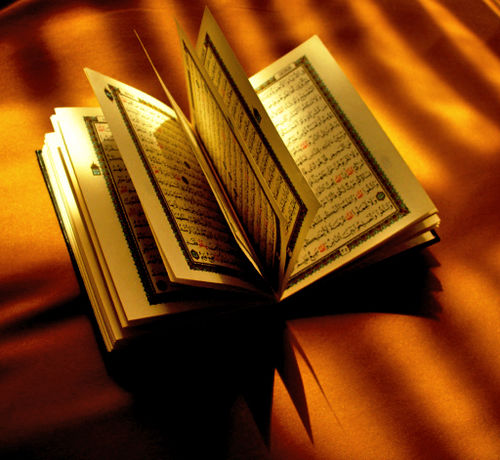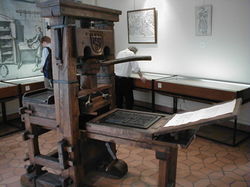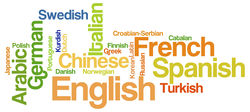Difference between revisions of "Category:Early Islamic Studies--1450s"
| (5 intermediate revisions by the same user not shown) | |||
| Line 4: | Line 4: | ||
{| cellpadding="2" cellspacing="5" style="width:100%; vertical-align:top; background:transparent;" | {| cellpadding="2" cellspacing="5" style="width:100%; vertical-align:top; background:transparent;" | ||
{{WindowMain | {{WindowMain | ||
|title= | |title= [[Early Islamic Studies]] ([[1450s]]) | ||
|backgroundLogo= Bluebg_rounded_croped.png | |backgroundLogo= Bluebg_rounded_croped.png | ||
|logo= history.png | |logo= history.png | ||
| Line 11: | Line 11: | ||
The page: '''Early Islamic Studies-- | The page: '''Early Islamic Studies--1450s''', includes (in chronological order) scholarly and literary works in the field of [[Early Islamic Studies]], made in the [[1450s|second half of the 15th century]], or from 1450 to 1499. | ||
[[File:Nicolaus Cusanus.jpg|thumb|150px|Nicolaus Cusanus]] | |||
}} | }} | ||
{{WindowMain | {{WindowMain | ||
|title= | |title= Highlights ([[1450s]]) | ||
|backgroundLogo= Bluebg_rounded_croped.png | |backgroundLogo= Bluebg_rounded_croped.png | ||
|logo = contents.png | |logo = contents.png | ||
| Line 32: | Line 24: | ||
* [[Cribratio Alchorani (Sifting the Koran / 1461 Cusanus), ms.]] | * [[Cribratio Alchorani (Sifting the Koran / 1461 Cusanus), ms.]] | ||
}} | }} | ||
{{WindowMain | {{WindowMain | ||
|title= [[ | |title= [[Interpreters]] ([[1850s]]) | ||
|backgroundLogo= Bluebg_rounded_croped.png | |backgroundLogo= Bluebg_rounded_croped.png | ||
|logo = history.png | |logo = history.png | ||
|px= 38 | |px= 38 | ||
|content= [[ | |content= | ||
* [[Nicolaus Cusanus]] | |||
* [[Giovanni Pico della Mirandola]] | |||
}} | }} | ||
|} | |} | ||
| Line 61: | Line 42: | ||
{{WindowMain | {{WindowMain | ||
|title= | |title= [[Timeline]] ([[1450s]]) | ||
|backgroundLogo= Bluebg_rounded_croped.png | |backgroundLogo= Bluebg_rounded_croped.png | ||
|logo= history.png | |logo= history.png | ||
|px= 38 | |px= 38 | ||
|content= [[File: | |content= [[File:1450s.jpg|thumb|left|250px]] | ||
'''''[[Early Islamic Studies]]''''' : [[:Category:Early Islamic Studies--2020s|2020s]] -- [[:Category:Early Islamic Studies--2010s|2010s]] -- [[:Category:Early Islamic Studies--2000s|2000s]] --[[:Category:Early Islamic Studies--1990s|1990s]] -- [[:Category:Early Islamic Studies--1980s|1980s]] -- [[:Category:Early Islamic Studies--1970s|1970s]] -- [[:Category:Early Islamic Studies--1960s|1960s]] -- [[:Category:Early Islamic Studies--1950s|1950s]] -- [[:Category:Early Islamic Studies--1940s|1940s]] -- [[:Category:Early Islamic Studies--1930s|1930s]] -- [[:Category:Early Islamic Studies--1920s|1920s]] -- [[:Category:Early Islamic Studies--1910s|1910s]] -- [[:Category:Early Islamic Studies--1900s|1900s]] -- [[:Category:Early Islamic Studies--1850s|1850s]] -- [[:Category:Early Islamic Studies--1800s|1800s]] -- [[:Category:Early Islamic Studies--1700s|1700s]] -- [[:Category:Early Islamic Studies--1600s|1600s]] -- [[:Category:Early Islamic Studies--1500s|1500s]] -- [[:Category:Early Islamic Studies--1450s|1450s]] -- [[Early Islamic Studies|Home]] | |||
[[ | '''''[[Timeline]]''''' : [[2020s]] -- [[2010s]] -- [[2000s]] -- [[1990s]] -- [[1980s]] -- [[1970s]] -- [[1960s]] -- [[1950s]] -- [[1940s]] -- [[1930s]] -- [[1920s]] -- [[1910s]] -- [[1900s]] -- [[1850s]] -- [[1800s]] -- [[1700s]] -- [[1600s]] -- [[1500s]] -- [[1450s]] -- [[Medieval]] -- [[Timeline|Home]] | ||
}} | }} | ||
{{WindowMain | {{WindowMain | ||
|title= | |title= [[Languages]] | ||
|backgroundLogo= Bluebg_rounded_croped.png | |backgroundLogo= Bluebg_rounded_croped.png | ||
|logo= contents.png | |logo= contents.png | ||
|px= 38 | |px= 38 | ||
|content= [[ | |content= [[FIle:Languages.jpg|thumb|left|250px]] | ||
[[ | '''''[[Early Islamic Studies]]''''' : [[:Category:Early Islamic Studies--English|English]] -- [[:Category:Early Islamic Studies--French|French]] -- [[:Category:Early Islamic Studies--German|German]] -- [[:Category:Early Islamic Studies--Italian|Italian]] -- [[:Category:Early Islamic Studies--Spanish|Spanish]] -//- [[Early Islamic Studies|Other]] | ||
}} | }} | ||
|} | |} | ||
|} | |} | ||
== History of research ([[1450s]]) -- Notes == | |||
====The Medieval legacy ==== | |||
In 1143 Robert of Ketton completed the first edition of the Qur'an in Latin, commissioned by Peter the Venerable to promote the religious conversion of Muslims to Christianity. In spite of its poor quality and anti-Islamic bias, Robert of Ketton's translation, first printed by Theodor Bibliander in 1543, was the standard version of the Qur'an known in Europe until the 17th century. | |||
Mark of Toledo's translation was more accurate and less biased than the previous translation by Robert of Ketton, but never became as popular. Knowledge of Islamic sources among Christian scholars came mostly through apologetic works. | |||
==== 1450s ==== | |||
In the second half of the 15th century, [[Nicolaus Cusanus]] and [[Giovanni Pico della Mirandola]] inaugurated a less polemical approach to the Qur'an, based on their conviction that every and each religion contains some portions of the Truth. | |||
Latest revision as of 19:32, 19 December 2019
|
|
Early Islamic Studies : 2020s -- 2010s -- 2000s --1990s -- 1980s -- 1970s -- 1960s -- 1950s -- 1940s -- 1930s -- 1920s -- 1910s -- 1900s -- 1850s -- 1800s -- 1700s -- 1600s -- 1500s -- 1450s -- Home Timeline : 2020s -- 2010s -- 2000s -- 1990s -- 1980s -- 1970s -- 1960s -- 1950s -- 1940s -- 1930s -- 1920s -- 1910s -- 1900s -- 1850s -- 1800s -- 1700s -- 1600s -- 1500s -- 1450s -- Medieval -- Home
|
History of research (1450s) -- Notes
The Medieval legacy
In 1143 Robert of Ketton completed the first edition of the Qur'an in Latin, commissioned by Peter the Venerable to promote the religious conversion of Muslims to Christianity. In spite of its poor quality and anti-Islamic bias, Robert of Ketton's translation, first printed by Theodor Bibliander in 1543, was the standard version of the Qur'an known in Europe until the 17th century.
Mark of Toledo's translation was more accurate and less biased than the previous translation by Robert of Ketton, but never became as popular. Knowledge of Islamic sources among Christian scholars came mostly through apologetic works.
1450s
In the second half of the 15th century, Nicolaus Cusanus and Giovanni Pico della Mirandola inaugurated a less polemical approach to the Qur'an, based on their conviction that every and each religion contains some portions of the Truth.
Pages in category "Early Islamic Studies--1450s"
The following 5 pages are in this category, out of 5 total.



